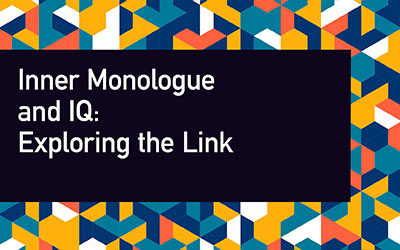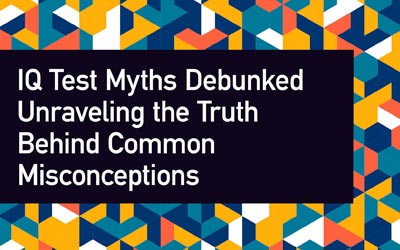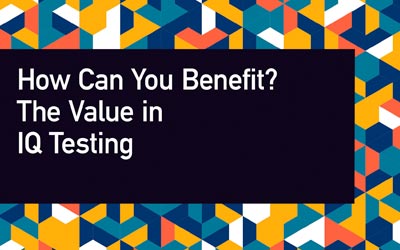The exploration of human intelligence and its quantification through the Intelligence Quotient (IQ) test has long been a subject of fascination and rigorous study in the field of cognitive psychology. This intrigue stems from the desire to understand the fundamental underpinnings of intellectual capabilities and how they correlate with educational achievements and life outcomes. The concept of IQ, first introduced over a century ago, has evolved significantly, reflecting the advancements in our understanding of cognitive processes and measurement methodologies.
The measurement of intelligence through IQ tests is not just a mere numerical representation of cognitive ability; it encapsulates a broad spectrum of cognitive functions, including memory, reasoning, problem-solving skills, and information processing speed. These cognitive attributes are essential in determining how individuals learn, comprehend, and apply knowledge, which directly impacts their educational performance. The linkage between IQ and educational achievement, therefore, becomes a pivotal area of study, providing insights into how cognitive abilities shape learning pathways and academic success.
However, the discussion of IQ's role in educational success is not without its complexities. It opens up a myriad of questions about the nature of intelligence, the effectiveness of IQ tests in capturing the multifaceted aspects of human cognition, and the extent to which these scores can predict academic and life successes. Moreover, it raises important considerations about the socio-cultural and environmental factors that influence both IQ scores and educational outcomes. This article aims to delve deep into these dimensions, offering a comprehensive analysis of the interplay between IQ and educational achievement, backed by empirical evidence and theoretical understanding from the field of cognitive psychology.
In doing so, this discourse does not merely present an academic examination of the relationship between intelligence quotient and educational achievement; it also endeavors to highlight the practical implications of understanding and measuring IQ. This understanding is crucial for educators, policymakers, and individuals alike, as it shapes the approach to learning, teaching methodologies, and personal development strategies. By exploring the depths of this connection, we aim to unfold the layers of this complex relationship, offering a nuanced perspective that transcends the traditional view of intelligence as a static, numerical entity. This exploration is not just about quantifying intelligence; it's about understanding its multifaceted nature and the profound impact it has on the educational journey and beyond.
Theoretical Background
The concept of intelligence, and consequently the development of the Intelligence Quotient (IQ) as a measure, has a storied history in cognitive psychology. The genesis of IQ testing can be traced back to the early 20th century, with the pioneering work of psychologists such as Alfred Binet and Theodore Simon, who developed the first standardized test to assess the intellectual development of children. This historical backdrop sets the stage for understanding the evolution of intelligence testing and its foundational theories.
Intelligence, in the realm of cognitive psychology, is not a monolithic construct but rather a complex and multifaceted phenomenon. Over the decades, various models and theories have emerged to explain the nature of intelligence. Spearman’s theory of general intelligence ('g' factor), for instance, posited that a single, overarching cognitive ability underlies all types of intellectual tasks. Contrasting this, Howard Gardner’s theory of multiple intelligences suggests that intelligence is not a single general ability, but rather a collection of distinct modalities, such as linguistic, logical-mathematical, spatial, and interpersonal intelligences. These theories, among others, have contributed to a rich and diverse understanding of what intelligence entails and how it can be measured.
Advancements in cognitive psychology have led to a more nuanced comprehension of intelligence, considering both innate cognitive abilities and the adaptive capacities of individuals. This has culminated in contemporary views of intelligence that incorporate cognitive processes such as memory, reasoning, problem-solving, and information processing. These cognitive processes play a crucial role in educational achievement, as they are fundamentally involved in learning, understanding, and applying knowledge. The theoretical underpinnings of intelligence provide a framework for examining the correlation between IQ scores and academic performance, guiding the exploration of how these cognitive abilities manifest in educational settings and influence academic outcomes.
Understanding these theoretical perspectives is crucial for interpreting the results of IQ tests and their implications for educational achievement. It is not just the raw score of an IQ test that matters but the intricate cognitive processes and diverse abilities it represents. As this field continues to evolve, the theoretical background of intelligence and IQ testing remains a dynamic and integral part of understanding the link between cognitive capabilities and educational success.
IQ and Educational Achievement: The Link
The correlation between Intelligence Quotient (IQ) and educational achievement is a subject of considerable interest in cognitive psychology, given its implications for understanding how cognitive abilities translate into academic success. Empirical research has consistently demonstrated a significant link between IQ scores and various measures of educational achievement, including grades, standardized test scores, and educational attainment. This relationship is often attributed to the cognitive skills assessed by IQ tests, such as reasoning, problem-solving, and understanding complex concepts, which are directly relevant to academic performance.
One of the key findings in this area is the predictive power of IQ for academic success. Studies have shown that higher IQ scores are generally associated with better grades and higher levels of educational attainment. This predictive relationship holds true across different age groups and educational settings, suggesting that IQ is a robust indicator of potential academic achievement. However, it's crucial to note that while IQ can be a strong predictor, it is not the sole determinant of educational success. Other factors, including motivation, socio-economic background, educational opportunities, and emotional intelligence, also play significant roles.
Case studies and longitudinal research provide further insights into how IQ impacts educational trajectories. For example, longitudinal studies following individuals from childhood into adulthood have found that higher childhood IQ scores correlate with higher levels of educational achievement and greater professional success later in life. These studies underscore the long-term significance of cognitive abilities as measured by IQ tests in shaping educational and career pathways.
Despite the strong correlation between IQ and educational achievement, the nature of this link is complex and multi-dimensional. It is not simply a matter of higher intelligence leading to better academic performance; rather, it is about how individuals with different cognitive abilities engage with and respond to educational experiences. IQ scores provide valuable information about a student's cognitive strengths and weaknesses, which can inform tailored educational approaches. Understanding this link is essential for educators and policymakers in designing educational strategies that cater to the diverse cognitive needs of learners, thereby maximizing their potential for academic success.
Beyond Academic Success: The Broader Impacts of High IQ
While the connection between high Intelligence Quotient (IQ) scores and academic achievement is well-established, the broader impacts of high IQ extend far beyond the classroom. Individuals with high IQ often exhibit strengths in various cognitive domains, such as enhanced problem-solving skills, rapid learning abilities, and advanced reasoning capabilities, which can significantly influence their personal, social, and professional lives.
In the personal realm, high IQ can manifest as a heightened ability to process complex information, a quick adaptation to new situations, and a voracious appetite for knowledge and learning. This can lead to a lifelong pursuit of personal growth and continuous learning, often resulting in a diverse range of interests and expertise. Moreover, high IQ individuals frequently exhibit high levels of creativity and innovation, applying their cognitive abilities to generate novel solutions to complex problems, which can be particularly advantageous in professional and creative endeavors.
Socially, the impacts of high IQ can be nuanced. On one hand, individuals with high IQ might experience enhanced social awareness and empathy, allowing for deeper understanding and navigation of social dynamics. On the other hand, they may sometimes feel out of sync with peers, especially during early developmental stages, due to differing interests or levels of cognitive processing. It is important to acknowledge these varied social experiences and provide support where needed to foster positive social development.
Professionally, high IQ is often correlated with high levels of career success. Individuals with high IQ are typically well-suited for roles that require complex problem-solving, strategic thinking, and innovative approaches. They are often found in leadership positions and fields that demand high levels of cognitive engagement, such as science, technology, engineering, and mathematics (STEM) disciplines, as well as in creative and academic professions. The ability to assimilate and apply new information rapidly makes them valuable assets in fast-paced and ever-evolving work environments.
However, it is crucial to note that while high IQ can provide certain advantages, it is not a guarantee of success in life. Emotional intelligence, resilience, perseverance, and social skills are equally important in achieving overall life satisfaction and success. Recognizing the broader impacts of high IQ allows for a more holistic understanding of intelligence and its role in shaping an individual's life trajectory. This understanding can guide more effective personal development strategies and support systems that take into account both the cognitive and emotional needs of high IQ individuals.
Critiques and Considerations
While the use of Intelligence Quotient (IQ) tests as a measure of cognitive abilities is widespread, it is not without its critiques and considerations. One major area of debate is the validity and fairness of IQ tests. Critics argue that these tests may not fully capture the complexity and multifaceted nature of human intelligence. There is also concern about cultural and socio-economic biases in IQ testing, which may lead to unfair advantages or disadvantages for certain groups. This has led to ongoing discussions about the need to refine IQ tests to ensure they are more inclusive and representative of diverse populations.
Another important consideration is the role of environmental factors in shaping intelligence and educational outcomes. While IQ tests are designed to measure innate cognitive abilities, it is undeniable that environmental influences, such as family background, educational opportunities, and socio-economic status, play a significant role in the development of these abilities. Studies have shown that children from more advantaged backgrounds tend to score higher on IQ tests, raising questions about the extent to which these scores reflect inherent ability versus environmental enrichment.
The potential for IQ tests to create self-fulfilling prophecies is another critique. Labeling individuals based on their IQ scores can lead to expectations that influence their performance and opportunities. For instance, a student labeled as 'high IQ' may receive more attention and resources, which can enhance their educational and career prospects. Conversely, a student with a lower IQ score may face lower expectations and fewer opportunities, potentially hindering their development.
Furthermore, the emphasis on IQ in educational and professional contexts can overshadow other important factors such as creativity, emotional intelligence, motivation, and perseverance. These attributes are crucial for success in many areas of life and are not adequately captured by traditional IQ tests. This underscores the need for a more balanced and comprehensive approach to assessing and nurturing individual potential.
In summary, while IQ tests provide valuable insights into cognitive abilities and their relationship with educational achievement, it is important to approach their use with a critical eye. Acknowledging and addressing the limitations and biases of IQ testing, as well as recognizing the importance of environmental and personal factors, is essential for a more equitable and holistic understanding of intelligence and its role in human development.
The Importance of IQ Testing
Despite the critiques and considerations surrounding IQ testing, its importance in cognitive psychology and educational contexts cannot be understated. IQ tests offer a standardized and objective method for assessing certain cognitive abilities, such as memory, analytical thinking, and problem-solving skills. These assessments can provide valuable insights into an individual’s cognitive strengths and weaknesses, facilitating a more tailored approach to learning and development.
One of the key benefits of IQ testing is its ability to identify individuals who may require special educational resources. For children, an IQ test can reveal advanced cognitive abilities, leading to opportunities for enrichment and accelerated learning programs. Conversely, it can also identify children who may need additional support, ensuring they receive the necessary resources to achieve their full potential. In both cases, early identification and intervention can have a significant impact on a child's educational trajectory and overall development.
In educational planning and curriculum development, IQ tests can inform more effective teaching strategies. Understanding the varied cognitive abilities of students allows educators to tailor their teaching methods, creating a more inclusive and effective learning environment. This can include differentiated instruction, where teaching is adjusted to meet the diverse needs of students, enhancing the learning experience for everyone.
Moreover, IQ testing plays a crucial role in research and understanding of human intelligence. It contributes to the development of theories and models of intelligence, helping researchers and psychologists to better understand the complex nature of cognitive abilities. This research can lead to advancements in educational theory and practice, ultimately benefiting learners of all ages.
Finally, IQ testing can be an empowering tool for individuals. Understanding one's cognitive profile can provide insights into personal learning styles and potential career paths. It can also help individuals recognize their strengths and areas for improvement, guiding personal and professional development decisions.
In conclusion, while IQ testing is not without its limitations, its role in understanding and enhancing cognitive abilities is invaluable. It provides a framework for identifying and nurturing individual potential, informing educational strategies, and advancing our understanding of human intelligence. As such, IQ testing remains an important tool in both educational and psychological contexts.
Future Directions in Intelligence Research
The field of intelligence research is continuously evolving, driven by advancements in technology, neuroscience, and a deeper understanding of the human mind. Looking to the future, several key areas are poised to shape the trajectory of intelligence research and its application in educational and psychological contexts.
One significant area is the integration of technology in intelligence testing. The rise of digital platforms and artificial intelligence offers new possibilities for more dynamic and adaptive testing methods. These technologies can provide more personalized and nuanced assessments, capturing a broader range of cognitive abilities and learning styles. Furthermore, the use of big data and machine learning algorithms in analyzing test results can reveal more intricate patterns and correlations in cognitive abilities, potentially leading to more sophisticated models of intelligence.
Neuroscience is another frontier that holds promise for intelligence research. Advancements in brain imaging techniques and neurobiological studies are providing deeper insights into the neurological underpinnings of intelligence. This research could lead to a better understanding of how different brain structures and functions contribute to cognitive abilities and how these can be nurtured and developed. It also opens the door to exploring the neuroplasticity of the brain and how intelligence can be enhanced through targeted cognitive training and interventions.
Moreover, the future of intelligence research is likely to see a greater emphasis on the interplay between genetics and environment. The study of gene-environment interactions in the development of intelligence could provide a more comprehensive understanding of how cognitive abilities are shaped. This research can inform more effective educational strategies that consider both genetic predispositions and environmental influences.
Another evolving area is the consideration of cultural and global perspectives in intelligence research. Recognizing the diversity in cognitive abilities and intelligence manifestations across different cultures is crucial for developing more inclusive and representative models of intelligence. This includes refining IQ tests to account for cultural differences and exploring alternative forms of intelligence that may be more prevalent or valued in different cultural contexts.
Finally, the future of intelligence research will likely focus on the holistic understanding of intelligence, considering not just cognitive abilities but also emotional and social intelligence. This approach acknowledges the complexity of human intelligence and its multifaceted nature, promoting a more comprehensive view of what it means to be intelligent.
In conclusion, the future directions in intelligence research are geared towards a more nuanced, inclusive, and interdisciplinary approach. These advancements promise to deepen our understanding of intelligence, refine its measurement, and enhance its application in improving educational outcomes and fostering human development.
Conclusion
The exploration of the relationship between Intelligence Quotient (IQ) and educational achievement is a multifaceted journey that extends far beyond the confines of traditional intelligence testing. This article has delved into the complex interplay between cognitive abilities as measured by IQ tests and their impact on educational outcomes, while also considering the broader implications of high IQ in various aspects of life.
We have seen that while IQ tests offer valuable insights into certain cognitive abilities, they are not definitive measures of an individual's potential or worth. The predictive power of IQ for academic success is significant, yet it is crucial to recognize the role of other factors such as motivation, emotional intelligence, and socio-economic background in shaping educational and life outcomes. Furthermore, the critiques and considerations surrounding IQ testing, including issues of bias and validity, remind us of the need for continuous refinement and contextual understanding in the application of these assessments.
The importance of IQ testing in identifying cognitive strengths and weaknesses, informing educational strategies, and guiding personal development cannot be underestimated. However, it should be approached with a critical and informed perspective, considering both its benefits and limitations. Future directions in intelligence research, propelled by advancements in technology, neuroscience, and a broader understanding of intelligence, hold the promise of more comprehensive and inclusive approaches to understanding and nurturing human cognitive abilities.
In conclusion, the relationship between IQ and educational achievement is a dynamic and evolving area of study. It challenges us to think critically about the nature of intelligence, the methods we use to measure it, and the ways in which we can best support individuals in realizing their full potential. As researchers, educators, and lifelong learners, we must continue to explore, question, and expand our understanding of this vital aspect of human cognition, always striving to enhance the educational experiences and life opportunities for all individuals.







